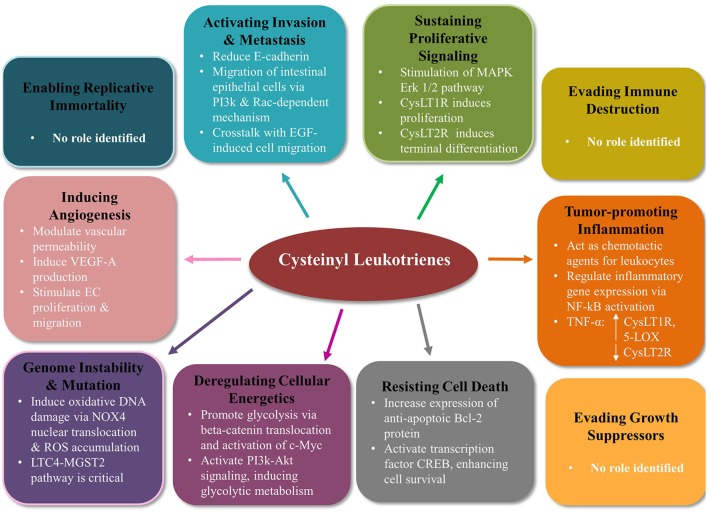Figure 2.
Cysteinyl leukotriene signaling modulates many of the hallmarks of cancer in colorectal cancer. Mounting evidence indicates CysLTs play an important role in the tumorigenesis of colorectal cancer. CysLT signaling modifies 7 out of the 10 Hanahan and Weinberg hallmarks of cancer (Hanahan and Weinberg, 2011). CysLTs sustain proliferative signaling, activate migration and invasion, induce angiogenesis, contribute to genome instability and mutation, deregulate cellular energetics, and resist cell death. No evidence to date supports a role for CysLT in enabling replicative immortality, evading immune destruction or evading growth suppressors. PI3K, phosphoinositide 3-kinase; EGF, epidermal growth factor; MAPK, mitogen-activated protein kinase; NF-κB, nuclear factor kappa b; TNFα, tumor necrosis factor alpha; CREB, cAMP response element binding; NOX4, NADPH oxidase 4; ROS, reactive oxygen species; MGST2, microsomal glutathione S-transferase 2; EC, endothelial cell.

